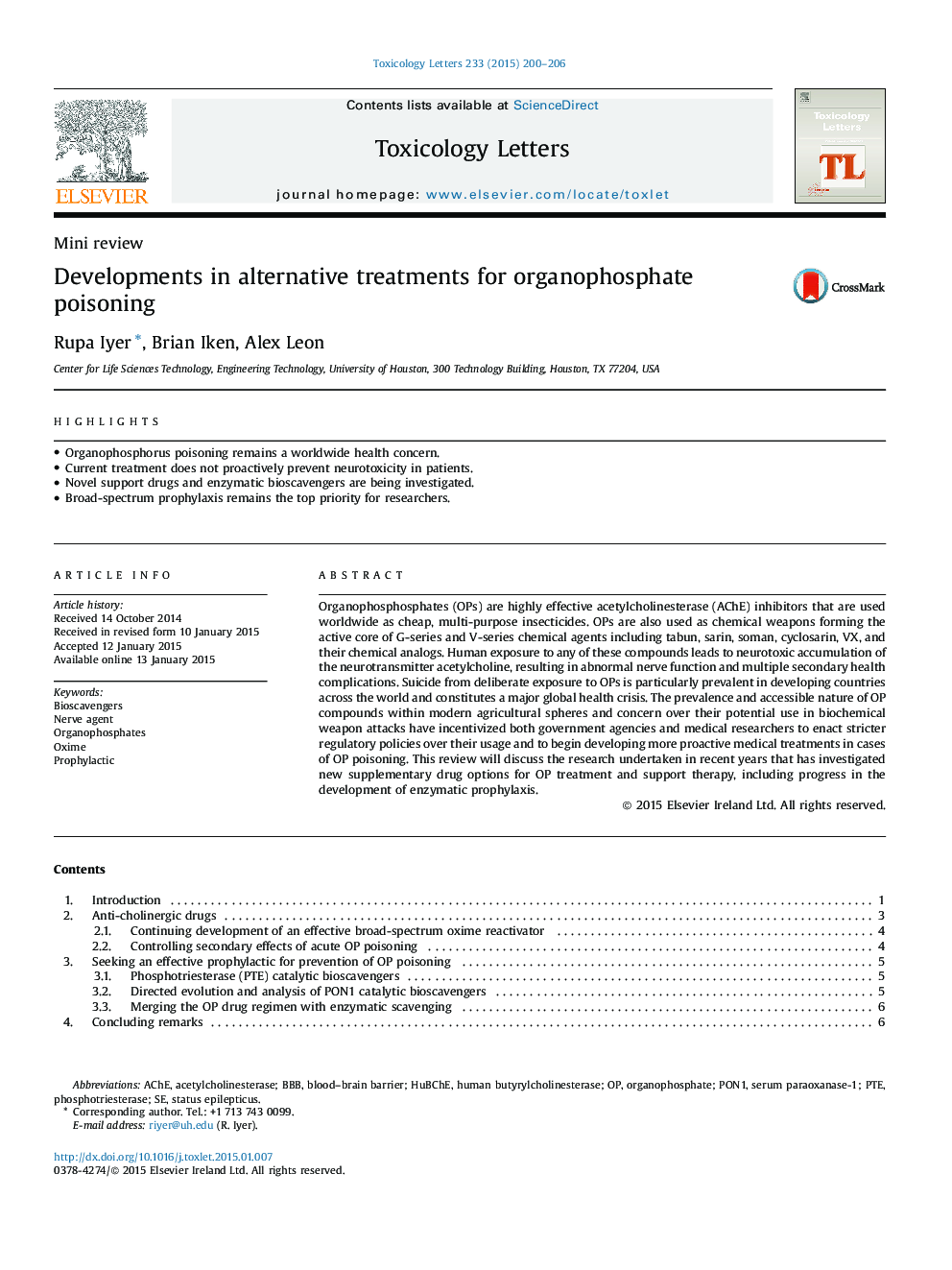| کد مقاله | کد نشریه | سال انتشار | مقاله انگلیسی | نسخه تمام متن |
|---|---|---|---|---|
| 5859922 | 1133156 | 2015 | 7 صفحه PDF | دانلود رایگان |
- Organophosphorus poisoning remains a worldwide health concern.
- Current treatment does not proactively prevent neurotoxicity in patients.
- Novel support drugs and enzymatic bioscavengers are being investigated.
- Broad-spectrum prophylaxis remains the top priority for researchers.
Organophosphosphates (OPs) are highly effective acetylcholinesterase (AChE) inhibitors that are used worldwide as cheap, multi-purpose insecticides. OPs are also used as chemical weapons forming the active core of G-series and V-series chemical agents including tabun, sarin, soman, cyclosarin, VX, and their chemical analogs. Human exposure to any of these compounds leads to neurotoxic accumulation of the neurotransmitter acetylcholine, resulting in abnormal nerve function and multiple secondary health complications. Suicide from deliberate exposure to OPs is particularly prevalent in developing countries across the world and constitutes a major global health crisis. The prevalence and accessible nature of OP compounds within modern agricultural spheres and concern over their potential use in biochemical weapon attacks have incentivized both government agencies and medical researchers to enact stricter regulatory policies over their usage and to begin developing more proactive medical treatments in cases of OP poisoning. This review will discuss the research undertaken in recent years that has investigated new supplementary drug options for OP treatment and support therapy, including progress in the development of enzymatic prophylaxis.
Journal: Toxicology Letters - Volume 233, Issue 2, 4 March 2015, Pages 200-206
